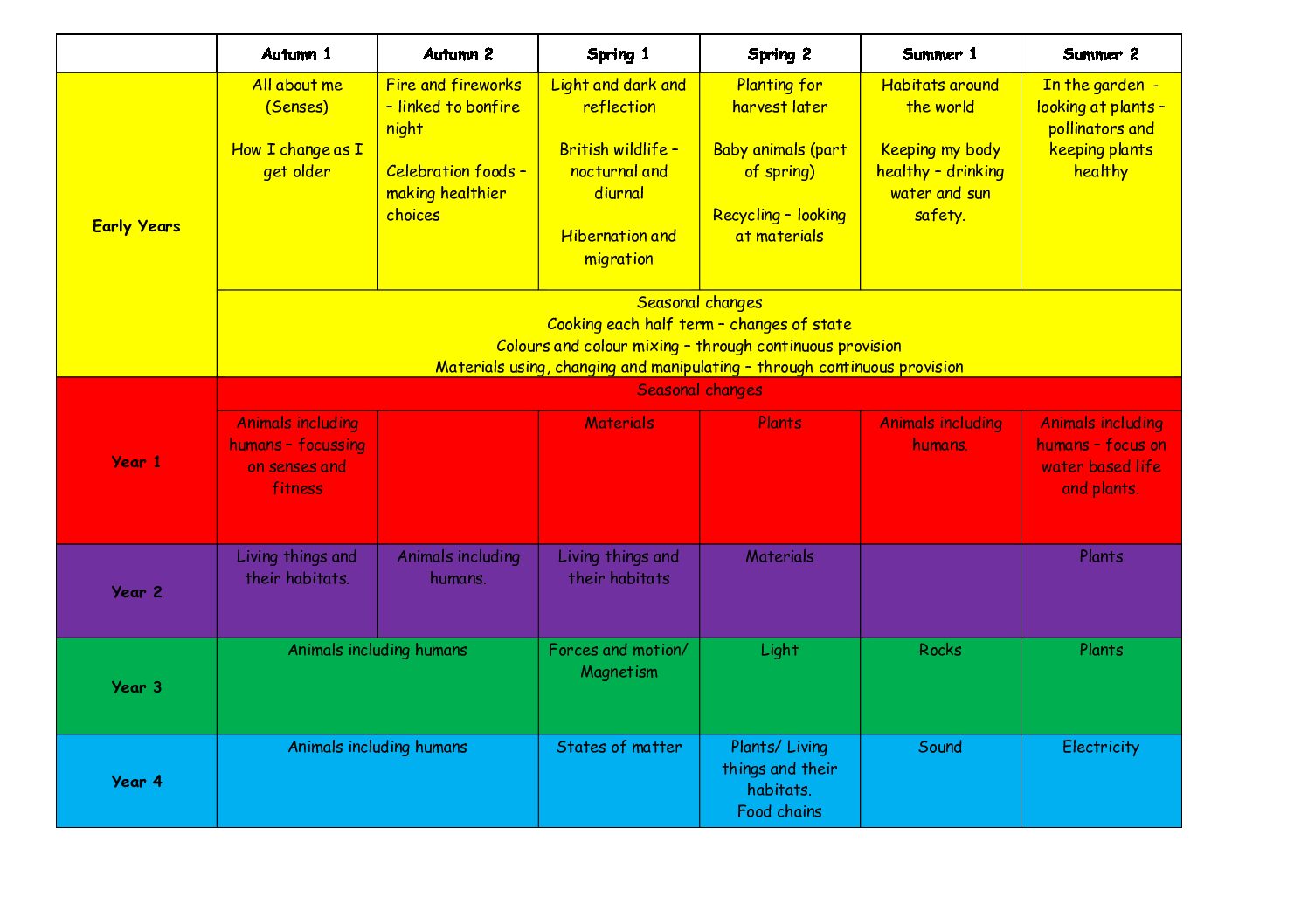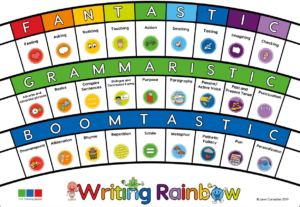
Mrs Cliff and Miss Younger led our most recent Reading Workshop, to enable parents to support their child/children with reading at home. Please click on the link below to access their presentation below:
At Beaudesert we aim to develop children’s natural curiosity about the world around them. They are encouraged to ask questions and investigate in order to acquire scientific knowledge, understanding and skills. Science is explored through observing, researching, measuring, questioning, recording and predicting. Using these skills, children will explore a range of different topics including plants, materials and living things. We believe thinking scientifically and problem solving can help children access learning across all subjects, not just science!

Curriculum Intent
We aim to provide pupils with the knowledge, understanding, attitudes, values and skills they need in order to reach their potential as individuals and within the community. Pupils are encouraged to take part in a wide range of activities and experiences across the curriculum, contributing fully to the life of their school and communities. In doing so they learn to recognise their own worth, work well with others and become increasingly responsible for their own learning. We encourage our children to reflect on their experiences and understand how they are developing personally and socially, tackling many of the spiritual, moral, social and cultural issues that are part of growing up.
We intend for our children to learn to understand and respect our common humanity; diversity and differences so that they can go on to form the effective, fulfilling relationships that are an essential part of life and learning. At Beaudesert, we choose to deliver Personal, Social, Health Education (including Relationships Education) using three main themes: ‘Health and Wellbeing’, ‘Relationships’ and ‘Living in the Wider World’. These themes cover the statutory guidance outlined by the Department for Education and support our school values.
Personal, Social, Health and Economic (PSHE) education is a subject through which pupils develop the knowledge, skills and attributes they need to manage their lives, now and in the future. It helps children and young people to stay healthy and safe, while preparing them to make the most of life and work. PSHE education also helps pupils to achieve their academic potential.
Most of PSHE education became statutory for all schools from September 2020 under the Children and Social Work Act 2017. This includes Relationships Education at Key Stages 1 and 2, Relationships and Sex Education (RSE) at key stages 3 and 4, and Health Education in both primary and secondary phases.
The Department for Education published Statutory Guidance for Relationships Education, Relationships and Sex Education (RSE) and Health Education in June 2019. This sets out what schools must cover from September 2020 (though not all they should cover as part of broader PSHE education).
Curriculum Implementation
Having the PSHE Association programme of study, ‘programme builders’ and access to their wealth of resources, helps guide and support teachers whilst teaching topics which may create debate or answering difficult questions from pupils. Having this resource allows teachers to plan and prepare for any questions which may arise and have a quality assured resource in place to refer to, to ensure personal beliefs and attitudes do not influence teaching.
At Beaudesert Lower School we benefit from being a member of the PSHE Association. Therefore, if any teachers are unsure about their ability to teach certain areas of the PSHE curriculum, they have access to up to date key guidance, the ability to exchange ideas within a community of dedicated practitioners and most importantly, can get support from subject experts via phone or email.
Please click on the links below to view our comprehensive programme of study and model lesson plans.
Impact
Our pupils leave school with a good understanding about how to stay safe, how to be healthy and how to develop positive relationships. Our pupils are well behaved, polite and respectful members of the school community who try hard to model our key school values: kindness, positivity, perseverance, compassion, respect and community spirit. They understand what it means to belong to a multi-cultural and diverse society.
What parents need to know about worry and anxiety
Our curriculum is driven to prepare our children for life long learning. At Beaudesert, we offer a aspirational and vibrant curriculum for all learners. We develop essential knowledge skills and understanding to ensure children have the skillset for later life. We encourage the development of new skills and experiences to broaden the children resilience, determination and integrity.
All curriculum areas are designed around the requirements of the national curriculum and provide a challenging and balanced education.
Geography
The children have a sense of wonder and curiosity about places and features of the world. The range and depth of the geographical knowledge and understanding of each child will increase. The children will ask questions, and develop geographical skills to find answers to these using a range of sources. The children will develop their geographical vocabulary and communicate their knowledge and understanding in a variety of ways.
History
The children have a passion and curiosity about the past. The range and depth of historical knowledge of each child will increase, they will grow their chronological understanding. The children will ask questions about the past and will find answers to these from a range of sources. They will increasingly evaluate the reliability of historical courses and will communicate their knowledge and understanding in a variety of ways.
Physical Education
At Beaudesert we aim to provide high quality physical education curriculum that develops physically literate children and inspires all pupils to succeed, enjoy and take part in sport and physical activity for life. We recognise the importance of physically active and the benefits this has in supporting children’s learning and developing in all areas of the curriculum, as well as enhancing wellbeing. Physical activity is embedded within our curriculum to have a positive effect on behaviour, concentration, self-esteem and the ability to form relationships.
We are committed to developing a positive growth mindset towards physical activity as well as promoting the core values of perseverance, determination, respect and tolerance. Our vision is that children’s experience of physical activity will be positive, motivating and have a lasting impact.
Music
Music teaching at Beaudesert aims to follow the specification of the National Curriculum: providing a broad, balanced and differentiated curriculum and ensuring the progressive development of musical concepts, knowledge and skills. We believe that music plays and integral role in helping children to feel part of a community, therefore, providing opportunities for all children to create, play, perform and enjoy music both in class and to an audience. Through assemblies and key stage performances, children showcase their talent and understanding of performing with awareness of others. Lessons enable children to develop their skills, appreciate a wide variety of music and begin to appraise a range of musical genres.
Music Knowledge and Skills – Year R
Music Knowledge and Skills – Year 1
Music Knowledge and Skills – Year 2
Music Knowledge and Skills – Year 3
Music Knowledge and Skills – Year 4
Modern Foreign Languages
Our aim is for all pupil’s to be immersed in high quality language lessons that focus on communication and foster’s pupil’s curiosity and understanding of the world.
We aim to build strong foundations for learning a second language that will offer pupils the opportunity to explore relationships between language, identity and all other cultures in the world. As part of this study, the focus will be upon providing opportunities for pupils to communicate for practical purposes through song, rhyme, stories or poems, whilst learning new ways of thinking about the wilder world and their place within it.
Intent
At Beaudesert, we aim to ensure that all children become confident and fluent within each strand of our English curriculum: reading, writing and spoken language. Our intention is to foster a life-long appreciation of rich vocabulary and texts, develop stamina to write at length and for purpose, developing the necessary expression and distinction in their writing to communicate well. We will provide vital tools for expression and creativity through imaginative story-telling. We strive to enable all children develop well both emotionally and socially through having access to a diverse range of literature across different mediums. This will enable children to read often for both pleasure and information. From the Early Years Foundation Stage through to Year Four, we provide an inspiring environment that promotes enjoyment in learning all key aspects of the English language.
Implementation
We have begun to deliver Jane Considine “The Write Stuff” programme, to enable our children to write effectively and coherently. This approach allows children to apply basic skills, vocabulary and grammar knowledge to write effective sentences. “The Write Stuff” explains the techniques of writing through the writing rainbow using the three zones of writing: FANTASTIC, GRAMMARISTIC, BOOMTASTIC.

From the writing rainbow, the symbols are used to support the children within their writing journey.
Early Reading
In Early years children are taught systematic synthetic phonics through the Government sanctioned scheme Little Wandle. Children in Early Years Foundation Stage have daily phonics lessons, reading groups with scheme books using appropriate phonics and keep up intervention groups for children that need more support. These sessions cover phonics for word reading as well as comprehension and prosody. (see separate Intent, Implementation and Impact for Phonics). In addition, daily literacy lessons, based on high quality texts following a topic theme, support a love of reading. These texts are used as inspiration for writing experiences, which are extended into opportunities for writing throughout continuous provision. Relevant books are provided in every area of the provision and children have access to exciting and engaging texts.
Reaching Every Child
Vulnerable groups and those needing additional reading support are identified by class teachers and reading interventions are put in place to support the development of their reading. This may be small group comprehension work or additional daily reading to develop fluency and build confidence. Purchases of lower level, older interest books have been bought to support our less confident readers in KS2.
Challenge
Whilst children are able to choose books that interest them, we encourage a desire to read outside that comfort zone so that they experience a wide range of genre and a good variety of fiction and non-fiction within that. We began a system of ‘leader-readers’ so that children in every year group and reading level get to experience leading a book discussion.
Writing
At Beaudesert, we ensure that the teaching of writing is purposeful and there is a clear progression for all children. In line with the National Curriculum, we ensure that each year group is teaching the explicit grammar, punctuation and spelling objectives required for that age group whilst exposing children to model texts and providing varied writing opportunities. As well as teaching the National Curriculum objectives, teachers are able to embed the skills throughout the year in cross-curricular writing opportunities. We make use of whole school joint write each term. A story begins in our Early Years with each child writing and their story is passed up so that every child adds their own additions until Year Four conclude. It shows the children their potential and progression, enabling them to share the communicative value of the written word. Writing is celebrated across the school with displays of high quality writing, along with sharing successes for the children in our celebration assemblies.
Each year group has indicated their own learning pathways that ensures that our intent for this subject is planned into their sequence of learning.
Impact
We foster a community of enthusiastic and engaged readers and writers who we hope will carry forward the high aspirations and creativity that has been encouraged at Beaudesert as they move forward in their education.
Please click on the link below for the latest PTA newsletter
https://www.ps-connect.cloud/schoolemails/160673673853178031316339/PTANEWSDecember2020pdf.pdf